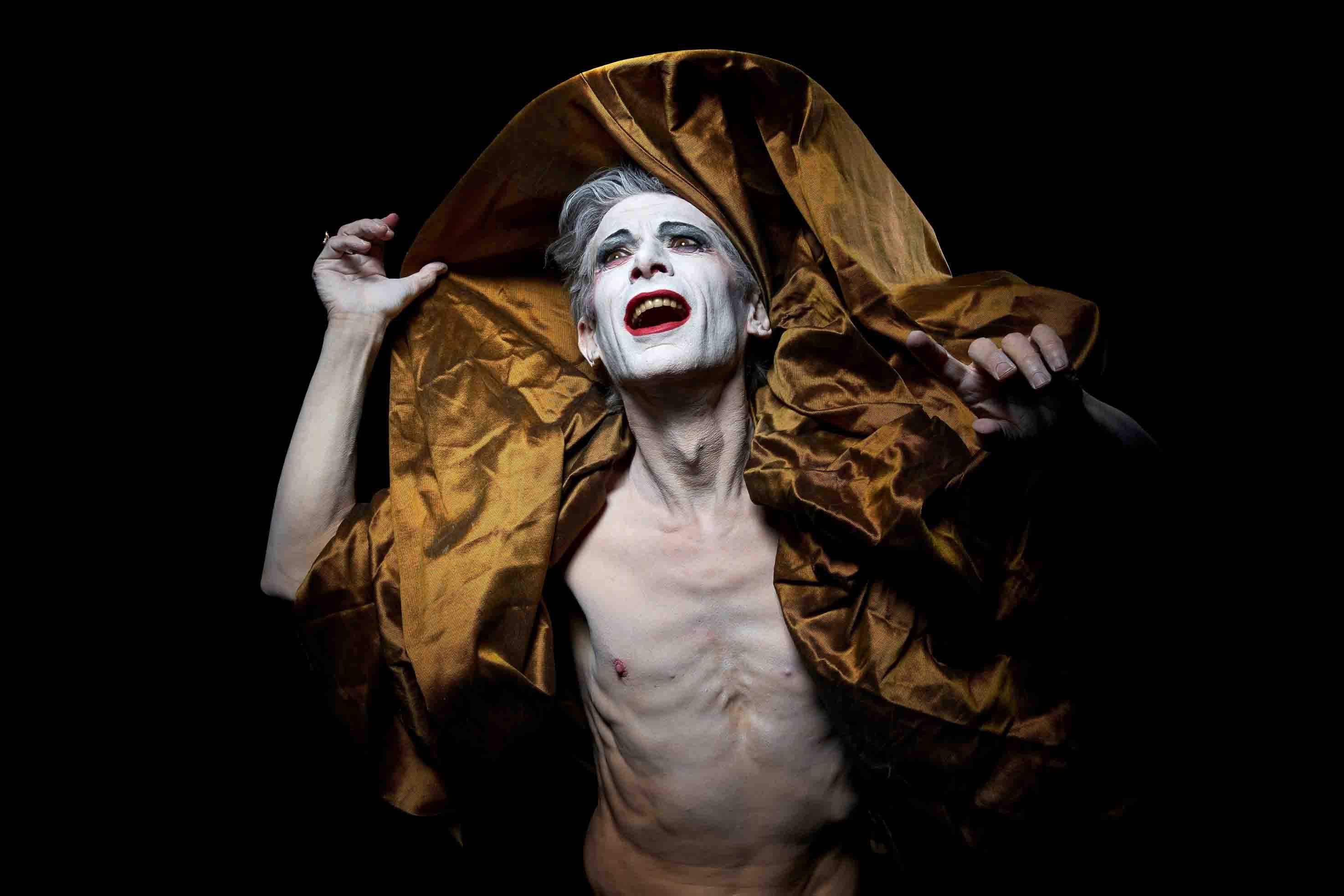Outside the theatre, there’s a drizzle and the sky is fluorescent grey. Inside, a much larger storm seems to be brewing: wind howls by the regal gold balconies, the sound of heavy rain slapping and splashing on decks is so convincing I look around in fear for the seats – their aged red velvet already fragile. But it’s fine – they’re all underneath the sort of calm-faced, silver-topped theatregoer one might reasonably expect at a staging of a classic Greek tragedy, at the Theatre Royal Brighton, on a Saturday night. There’s not much that says ‘2018’ so far, save the phone I’ve just put away, but I’m hoping to find it in what Neil Bartlett, celebrated playwright and queering machine, might have done with Medea, darkest of Greek tragedies.
Medea’s story, of course, is synonymous with horror: a woman who murders her children goes beyond atrocity to aberration, from act of horror to breach of ‘natural’ law.
In this update, not so much a stripping down as a poetic condensation, there are basically three elements, all of them exquisite – performance, costume, and sound design: Francois Testory’s searing rock-opera Medea, an island in a gown of high design by Mr Pearl, is surrounded by darkness and a sea of sounds; Phil Von’s live composition in both the role of chorus (creating aural landscapes of assent) and mask (using vocal effects for Medea to take on other characters).
Tacking between the worlds of Pelias, Creon, Jason and the Argonauts – the one of open seas we know from books – and the world of ‘too many chandeliers, too much marble’, reminiscent of reality television, Medea sings and seethes of damage, describing acts of intimacy as though they were acts of violence and vice versa, in an operatic, grisly prose poem part controlled lilting measure, part explicit pornographic confession.
Against an unmistakably feminine performance, our eyes keep falling on a flat, pale chest, bared to just below the nipples – lest we forget, this is not a body made to nurture babies – by a magnificent frock somewhere between muted purple and the colour of dried blood. She doesn’t integrate with the rest of the stage, she is the stage: the gown she wears both a display of exquisite restrictions and a vehicle of isolation. The costume is a set in itself. A detachable gold train becomes a cloak with spurting red tassles; held aloft it becomes a backdrop. Two stacked tubes at the hem, reminiscent of life-buoys, are lifted to reveal huge platform shoes, a two-part plinth: is it strapped to the feet, or are the feet strapped to it? Tottering and towering on this split pedestal, Medea is both larger than life and literally unmoored. The exhaustion of exile in which she is shunted from place to place, unable to inhabit or provide a home, undergirds a fresh take on her rage: ‘I gave birth in hotel rooms,’ she howls, of the children she would then drown in a pool.
This Medea, in writer Jean-Rene Lemoine’s retelling, came to theatres in French at the start of the migrant crisis and long before Weinstein, #metoo, and the gilded sadness of Melania. But at this moment, the inside of the Theatre Royal seems to contain a perfect storm.
Featured image (top) by Manuel Vason

